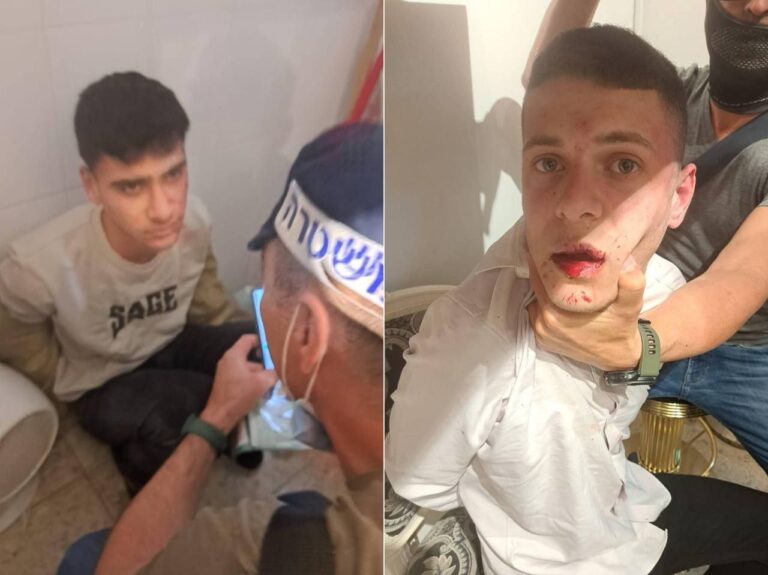 By Rabbi Yair Hoffman for the Five Towns Jewish Times
By Rabbi Yair Hoffman for the Five Towns Jewish Times
Pokemon GO is a game that is generally played on mobile phones that uses something called augmented reality. Virtual creatures appear on the screen that otherwise appears to be your outside surroundings. The goal of the game is to battle, capture and train these virtual creatures. The game has achieved record status in terms of downloading. Over 10 million people downloaded the game in the first week, and it was only released in July. It is estimated that one out of every four android phones have downloaded this game. Five days after its release, the market value of Nintendo stock rose nine billion dollars. That is huge.
The problem is one of distraction.
Across the country, indeed, the world, players of Pokemon GO are concerned about fighting and capturing the Pokemon, and pay little attention to what actually lies before them physically. In California, two men fell off a 90 foot cliff while hunting Pokemon in Encinitas. In Baltimore, a Pokemon GO player crashed his SUV into a police vehicle and it was filmed by the officer’s body cam. A New Jersey woman climbed a tree inside Eglington Cemetery and had to call 911 when she could not get herself down.
The game was just released in Japan last week. In Otso, Japan, this past Monday, a 21-year-old worker drove into a line of cars waiting at a red light while playing the game. “I was focused on the game and did not notice the car in front of me,” the man was quoted as telling the police. In Sapporo, Japan, an elementary school student who was playing the game while cycling crashed into another bicycle Sunday morning, the police said. The student suffered minor injuries.
THE QUESTION
What happens if Reuvain leaves an item on the sidewalk, and Shimon, who is playing Pokemon GO, smashes it while walking. Who is responsible? And what if it was a bicycle and it was the Pokemon GO player, who got injured or his phone got damaged? Is Reuvain who left his bicycle on the sidewalk responsible for the damage to Shimon’s or his phone? Does the fact that Shimon was playing Pokemon GO make any difference?
Also, another question arises too, pointed out by my young chevrusah, Yisroel Reichman. If the Pokemon GO player got eaten by the Pokemon monster as a result of his stumbling upon the bicycle left on the sidewalk and the player suffered a financial loss as a result of his tripping over the item – does the owner of the bicycle have to pay damages?
GENERAL HALACHA
Although it may seem counter-intuitive, the general halacha is that a person who is walking and breaks something – is exempt. This is based upon a fascinating principle found in Bava Kamma 27b. There it states that it is not the nature of a person who is walking to be looking down below as to where he is walking. For this reason, if Reuvain has dug a pit in a public area, he is responsible for the damage that Shimon incurred while walking. Leaving out a bicycle where someone can trip is analogous to digging a hole in a public area. The Aruch HaShulchan (CM 412:5) states this.
APPLICATION TO POKEMON GO
From the above, it would seem that the Pokemon GO player is exempt and the person who left the bicycle out may even be responsible for the broken phone of the Pokemon GO player.
However, there may be another issue going on here. The view of the Tosfos (UShmuel 27b) is that there are two types of Ones – and only a complete Ones is exempt from damages. The Baalei Tosfos (based on the Gemorah in Bava Metziah 82b) distinguish between a watchman who allowed an item to get lost versus a watchman who allowed an item to get stolen. They thus distinguish between two types of Ones. It can readily be argued that a Pokemon GO player who breaks an item is compared to the lesser Ones and is thus liable. It could also be argued that the concept of “people do not look where they are going” applies here across the board and the Pokemon GO player is not making things worse.
The language of the Shulchan Aruch (in CM 378:1 as the Shach clarifies), indicates that a person who causes another damage must pay. However, this is only if it is a complete Ones completely faultless. We assume that the halacha of “a person generally is busy with his thoughts and does not look downward” is treated like an Ones Gamur. If, however, it was not a complete Ones, but only a partial Ones – it would seem that he would be obligated to pay.
The Gemorah in Bava Kamma 48b – the reason is that both either had permission or didn’t have permission, but if one had permission to be there and the other did not – the one that did not is liable.
The Chazon Ish (Bava Kamma 4:2) explains the halachic of present “with permission” and present “without permission” as if someone is doing something wrong then he is financially responsible.
KIM LEE
There is also a concept in halacha (see Shach Choshain Mishpat 183:10) called, Kim Lee kehani Poskim – I know that the halacha is in accordance with these Poskim.” This position may be claimed by any person that is holding onto to certain property or moneys and can be invoked in almost any debate in the rishonim. The Maharsham (Volume IV #27) states that the muchzak can claim Kim Lee like the opinion that obligates payment. This would apply either to Reuvain or Shimon the Pokemon GO player. Thus, it would seem that the Pokemon GO player can always say that he holds the halacha is that he is exempt. The owner of the bicycle can say that he holds like the Chazon Ish and that he is exempt.
What about any financial losses that are incurred by the Pokemon GO player in his avatar being eaten by the Pokemon creature? It would seem that these fall under the parameters of Grama – an indirect loss. The halacha discusses two types of indirect damage. There is an indirect form of damage called “Garmi.” A Garmi is when an indirect form of damage results is viewed as a clear, present and highly likely result. If Reuvain were to rip up Shimon’s train ticket, for example, that is a Garmi form of damage. If Reuvain were to poison Shimon’s dog by placing a poisonous food next to him, this is considered Gramah not Garmi. It may very well be that Shimon’s animal will not eat the food. Garmi damages are enforceable in a Bais Din. Gramah damages are not. If the player had some financial interests somehow in his Pokemon GO avatar, the damage would at best be Gramah and the other person would be exempt.
All this strictly refers to Pokemon GO players on foot. If they are driving or on a bicycle – they would be completely liable.
The author can be reached at [email protected]
The seventh volume of Not Your Usual Halacha has just been released. The author’s books can be purchased at amazon.com






6 Responses
As I recall Pac-Man was not as nefarious.
??? ??
tx for the current events n halacha wow amazing how it made my day now lets speak about tznius n lack there of
….not to mention bitul Torah, moshav leitzim, etc…
Rule #1: Pokémon don’t harm players only other Pokémon. (And they eat razzleberries, not people.)
Rule #2: Pokémon never die and neither do trainers (players).
So there really wouldn’t be any finical loss… And I’ve demonstrated way too much knowledge of this topic for a public forum so I’ll stop now.
In order to play the game you must actively pay attention to it, therefore you have by definition gemeras das, hence by all accounts the one playing and causing damages is a POSHEA, and is always chaiv- he is not like a regular person walking while daydreaming